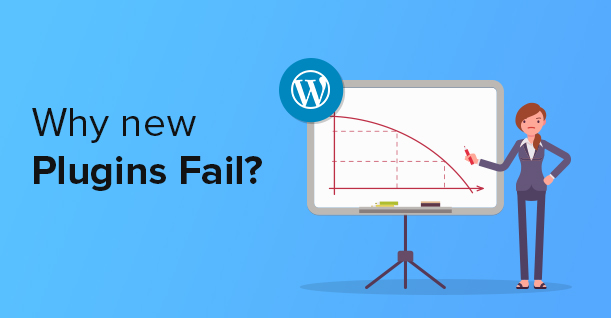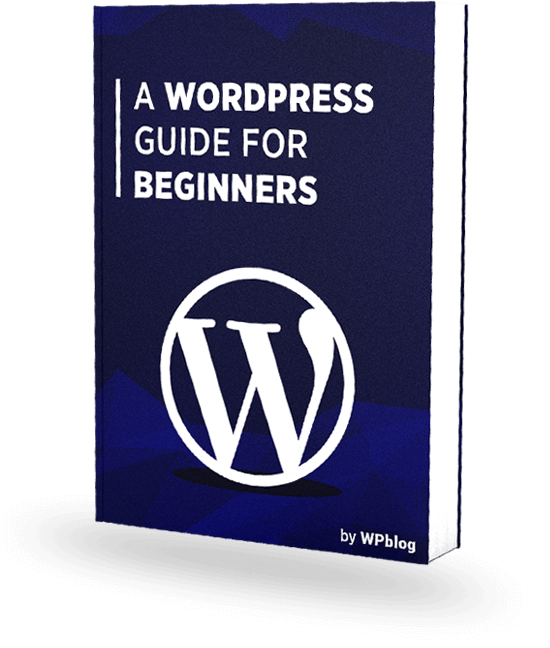Why New Plugins Fail – Is The WordPress Community To Blame?

WordPress has achieved massive success since its inception in 2004. In a very short period of time, WordPress has become the most popular CMS leaving behind the likes of Drupal and Joomla. In a recent survey by W3Techs, it was found that WordPress now powers 30% of the web. This is phenomenal growth considering it was 25% in 2016. Powering 30% of the web means a lot of people will build solutions around WordPress
The WordPress community deserves approbation for making WordPress what it is today. The community is highly active and engage on thousands of social groups on Facebook, Slack, Reddit, StackExchange, LinkedIn as well as on various forums. The WordCamp is one of the biggest and one of the most anticipated tech events. Several WordPress meetups are also held to bring together different professionals from the WordPress community.
This success is also heavily credited to the thousands of free WordPress plugins in the wordpress.org repository. These plugins add various functionalities to WordPress websites making them more powerful. There are currently 54,718 free plugins for users to choose from. The open source nature of WordPress makes it an attractive prospect for not only website owners, but also developers, bloggers, designers and anything that comes in between.
But How Many New Plugins Make It To The Top?
Well, not many. There are tens and thousands of plugins with no more than 1000 active installs in the repository. These new plugins are submitted to the repository everyday in huge numbers but they don’t seem to receive the sort of appreciation they deserve.
Chris Lema pointed out in one of his articles that plugin developers mostly forget one of the most important factor of a successful WordPress plugin, that is user experience. However, there are many excellent WordPress plugins with decent user experience and yet they find it almost impossible to establish themselves in the WordPress ecosystem.
Many plugin categories are dominated by one or two most popular plugins. A new plugin author that comes up with a new way to approach these categories can not hope to enjoy same level of adoption rate like the giants.This usually results in new authors losing their motivation to maintain it. That’s why we see a lot of dead plugins in the WordPress repository.
Let’s have a look at some of the popular WordPress categories.
SEO Plugins
I am sure you have searched for SEO plugins multiple times on WordPress.org but how many times have you scrolled past these two:
There is no question about how good Yoast SEO and All in One SEO has been over the years. But you cannot even compare their downloads with other plugins in this category. The SEO Framework is an excellent SEO plugin with only 50,000 installs as compared to the millions of Yoast and All in One.
WordPress Security
Wordfence has been dominating this plugin category since so long. With more than 2 million active installs, no other security plugin comes close to WordFence.
It is an excellent plugin. But that doesn’t mean there aren’t other security plugins who don’t deserve our attention. WordPress Backup And Security Plugin by BlogVault is great security plugin and certainly deserves more than just 20,000 active installs.
WordPress Cache
The story in this category is no different. W3 Total Cache and WP Super Cache are running the show for quite a while.
So What Could Cause Death of New WordPress Plugins
I would say it’s because WordPress community does not willingly adopt newer plugins. We are not as willing to promote newer plugins as we are willing to promote the more successful ones. Blogs are looking to make bigger affiliate payouts by publishing sponsored reviews of bigger plugins while paying no attention to the smaller ones.
If a WordPress plugin developer wants to create an SEO, security or cache plugin, how long will it take for the WordPress community to adapt to that plugin. If you are a WordPress developer, you would understand that it requires a great amount of effort to create a good enough WordPress plugin. And all those efforts would go in vain if the WordPress community is not welcoming enough of those new plugins.
Let’s Hear it From The Experts
Zac Gordon
Without a strong plan, it might not be smart to try to take on some of the bigger plugins head-on.
The WordPress ecosystem is similar to many others that have a deep saturation of certain niches that plugins provide. Without a strong plan, it might not be smart to try to take on some of the bigger plugins head-on. However, building services or extensions to plugins or finding more niche areas that don’t have needs met could be a smart move.
We are also at an interesting time with Gutenberg rolling out where some new plugins that are first to market with Gutenberg ready plugins can gain some traction.
Peter Nilsson
I think the WordPress Plugin Repository could present new plugins in a better way than it does today
Developing new WordPress plugins and trying to compete with well-established plugins with thousands, sometimes millions of users can be an almost insurmountable task. I think most WordPress users play safe. Why try a new plugin when there are established, reputable and working plugins? In addition, I think the WordPress Plugin Repository could present new plugins in a better way than it does today. It’s hard for new plugins to get exposure when only well-known and famous WordPress plugins appear as featured, and popular! Where is the tab – New Plugins? So my proposal for WordPress is – Try and expose and promote more new plugins. There are numerous great plugins from hard working people, which deserves to be presented, not just plugins from Automattic.
Mario Peshev
WordPress users are picky and often look for free alternatives even for the most comprehensive and flexible features
With over 54,000 free plugins and a multitude of premium solutions, marketing a new WordPress plugin is extremely challenging. WordPress users are picky and often look for free alternatives even for the most comprehensive and flexible features. It’s a tough market to enter – and due to the low-cost pricing adopted by the majority of the plugins, most winning products are general-purpose plugins aiming for tens of thousands of customers in order to break even
Frank Goossens
All of this makes perfect sense from your average website-owner; they don’t care about “new, great and exciting”, they want “known, good enough and trustworthy”.
I guess this is how a mature market works; given a user’s requirements if there are established solutions (as in; works well enough, good support, somewhat regular updates), then your average user will choose that established plugin.
So to have a successful plugin you need to be (amongst the) first on the market for that functionality OR you should look for a market where there are no established plugins are available OR you should invest a lot in (affiliate) marketing to conquer an existing market (but that’s only possible if you’re doing premium).
All of this makes perfect sense from your average website-owner; they don’t care about “new, great and exciting”, they want “known, good enough and trustworthy”.
Ivica Delic
People are just not comfortable with changes in their working routine, in which, tools are important part
My experience so far with new plugins is that:
a) there are simply too many WordPress plugins out there and people often “can’t see the forest for the trees”, meaning they can’t easily recognize quality plugins in the sea of the similar ones
b) people are just not comfortable with changes in their working routine, in which, tools are an important part
Users expect from the new plugins to get more (features, benefits, better support,…) for less (money, working time, problems…) before they finally decide it is worth it for them to replace a tool with another one.
Users really want to test a possible new plugin before a final decision so they don’t just “throw” their money away. That is how things are. We noticed this behavior pattern in all of our groups and this was especially notable in the example of Swift Performance plugin. A relatively new but powerful speed up optimization plugin.
At the beginning, this plugin had only a Premium version and the author gave 3 days free testing period. However, few were interested in testing it, as they had to give their e-mail and do all the testing in (just) 3 days. So there really wasn’t much interest. Nevertheless, those that tried Swift plugin were amazed and blown away with its power & potential. All of that wasn’t enough.
Until author released a free Lite version and along with it we, “Swift believers”, also created Swift Performance Facebook group. Those two were the game changer – people could try the plugin for free and they got their “Swift social proofs” so the critical mass and enough big buzz around the plugin were created to reach a broader user base.
[socialpoll id=”2496226″]
Of course, many people would have a different point of views regarding this topic. If you want to share yours, feel free to leave a comment.
Share Your Views!

Create Faster WordPress Websites!
Free eBook on WordPress Performance right in your inbox.














